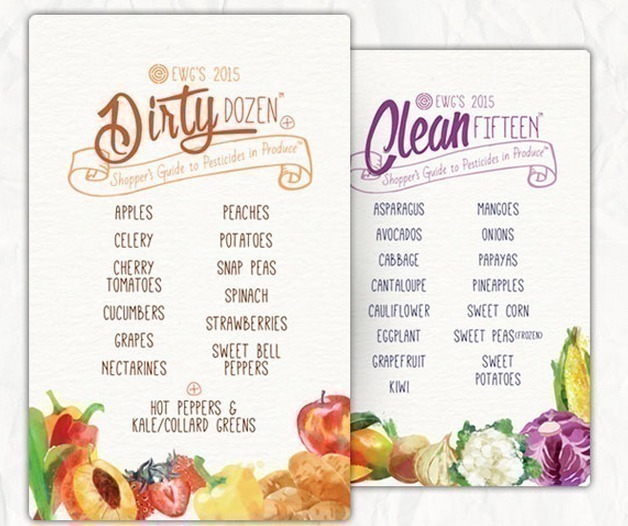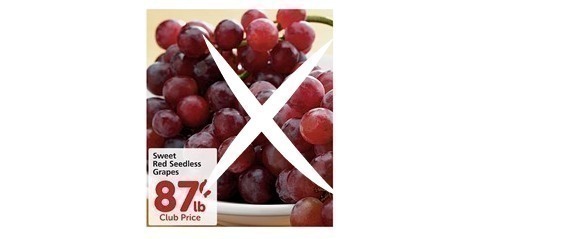
The last year or two you have probably heard all kinds of news reports that tell people that Organic foods don’t necessarily contain more nutrients than non-organic ones.
When you listen to these reports, it almost sounds as if the news media and people in general see organic food as a fad… or, a way for farmers to make extra money from consumers. That in itself is somewhat offensive… at least it is to me. It bothers me when people say that. As if the regular food industry isn’t out to make a profit – it’s obvious that their concern about your health is nowhere close to the concern that organic farmers have.
Farmers really do earn so little money – and given that organic farmers are truly passionate about soil health, clean water and good food, it’s ironic to think that some people think they are making SO MUCH when in fact they usually don’t worry enough about their bottom line.
The bottom line is: Organic farmers don’t farm for huge profits – it’s similar to being an artist, or a writer.. you do it because you truly love doing it, you are passionate about it, and you know you are making a HUGE difference.
You aren’t doing it for the big bucks, because they truly aren’t there.
Many people have shifted their purchases the last few years, and more and more people are incorporating more Organic items into their diet. It’s good to see a shift, and although not everyone wants to make that shift, there are FIVE great reasons to think about heading that direction.
1. Eating Organic reduces your Body’s Toxic Burden
It is TRUE. U.S. Farmers use 1.1 billion pounds of pesticides a year — those residues can last for days, and even years, in the environment. That goes for Soil, Air, and Water.
Plants and animals that are organic haven’t been treated with pesticides, herbicides, fertilizers from synthetic ingredients, growth hormones or radiation.
Pesticides in PLANTS are toxic – and as time goes on, we are likely to be exposed to many more pesticides. Biotech companies like Monsanto have genetically altered plants, making the crops poisonous to pests like worms (in corn).
Then other GMO plants are engineered to be resistant .. so that farms can spray roundup, which is an endocrine disruptor – the EPA has raised the permitted tolerance levels even HIGHER since many pests and weeds are developing immunity to those modifications. Roundup contains glyphosate, which affects the beneficial bacteria in your body. Without that good bacteria, pathogens can overgrow and takeover.
According to Dr. Senef, a research scientist at Massachusetts Institute of Technology (MIT), Glyphosate can possibly be the most important factor in the development of multiple chronic diseases .. which can include Depression, Allergies, Obesity, Autism, IBS, Infertility, Cancer, Parkinson’s & more.
Moving away from the focus on us, we also must focus on those who pick our food – many are undocumented workers, they lack health insurance and they are constantly exposed to those high pesticides by picking in our fields. Is it fair to expect those (who earn SO little) .. who don’t have health care, who do some of the hardest physical work to shoulder that burden of such high pesticide exposure? I think not.
Animal products are not too different – most of the livestock is raised on Corn and Soy – 90% of which is GMO. Their feed also holds hormones and antibiotics. Increased milk production in cows causes them to have more infections – so they are dosed with antibiotics. Hormones and antibiotics go into the dairy products and into your body.
Do you think about that when you purchase meat in store?
2. Organic Farming is Better for the Environment Overall
Organic farmers tend to grow less, smaller yields, and they rely on crop rotation, and animal manure instead of using synthetic weed killers, pesticides and fertilizers. They do this to help retain the integrity of the soil that they are working with.
Talk to any organic farmer and you will discover that many of them are passionate about soil health.
Most organic food is distributed locally, which results in less emissions for transportation. Organic farming encourages a natural balance .. and prevents one species from dominating over another. Not only that, avoiding the use of chemicals does not pose the same risk for soil and water contamination.
3. Organic foods are Non-GMO
There IS an importance in this – you can read our last post for more details.
GMO’s might seem harmless to some, but combining DNA of different species in a way that nature can’t replicate , and altering crops to make them pest and weather resistant CAN have an effect on your body.
Cheap corn in the grocery store might be attractive to some, but it screams GMO to me, and I won’t touch it with a ten foot pole – GMO corn was combined with bacteria in order to produce its OWN insecticide – Bt-Toxin.
That toxin destroys the digestive tracts of insects, but that’s not just it.. it also affects human cells, and can lead to leaky gut. Leaky gut can be the trigger for MANY health issues to include allergies, asthma, and a laundry list of adverse health effects.
(On a side note, some Organic farmers ALSO use Bt, but a much lower concentration that breaks down quickly – unlike large commercial farms).
Is it a coincidence that so many of our children are asthmatic? Have food allergies? We can’t always say that these issues are the cause of food, but you can’t help but realize that diet does play a huge part in our health and in the health of our children.

4. Organic Crops are Better for You
Simply from the standpoint that ANY form of chemicals can have a negative impact on your body.
Heavy use of pesticides has an effect on the soil … good soil health is essential for good bacteria, and good bacteria is something our gut truly needs.
If eating Organic produce is daunting to you or seems expensive, it’s really not that much more in most cases. Keep in mind the Clean 15 as they are the lowest in terms of pesticides… they include:
- Sweet Potatoes
- Cauliflower
- Cantaloupe
- Grapefruit
- Eggplant
- Kiwi
- Mangoes
- Asparagus
- Papayas*
- Sweet Corn*
- Pineapple
- Cabbage
- Sweet Peas – Frozen
- Onions
- Avocados
One thing to remember though is that although Corn and Papayas ARE on the list, they are ALSO usually GMO – Genetically Modified, ..so although they are on the Clean 15 list, they might be two to try to stay away from.

These 15 below contain the highest amount of pesticide, so they are better off purchased Organic ~ even Grapes. But gosh… grapes are SO cheap this week! They might be, but they may also be a poor choice.
- Apples
- Strawberries
- Grapes
- Celery
- Peaches
- Spinach
- Sweet Bell Peppers
- Nectarines
- Cucumbers
- Cherry Tomatoes
- Snap Peas
- Potatoes
- Hot Peppers
- Kale
- Collard Greens
With that same mindset you should also try to stay away from Papaya, Cotton (and anything with Cottonseed Oil), Sugar Beets (most sugar in your grocery store is made with GMO sugar beets), Corn – including High Fructose Corn Syrup, Corn Oil, Soy and Yellow Squash/Zucchini.
5. Preventing Disease is Far Greater than Treating Existing
Agree?
While not everyone might agree, I do think that this holds some truth. We don’t know if the health issues we experience today might be connected to the rising use and reliance on pesticides. Poor food choices, and large amounts of processed foods made readily available.
On any given day, drive around your city and see the drive through line at McDonalds wrapped around the building. The same goes for Wendy’s … Sonic, and more.
I think we need to realize that although each of us is different, our unique bodies react different to the chemicals we ingest and use topically – although they may seem trivial and small, over time, the toxicity build up can have adverse effects. Perhaps the items you do ingest have some effect on your health now, if not at some point in your lifetime.
Organic might be a fad to some… the cost and lifestyle switch might be difficult for some to absorb at first – eating differently might not be convenient nor is it popular.. especially when you are faced with an industry of cheap convenient processed food.
But I will say one thing: That’s not a risk I am willing to take – but if you are, and if it doesn’t bother you even slightly, then that’s your choice. Nobody is forcing your food choices.



